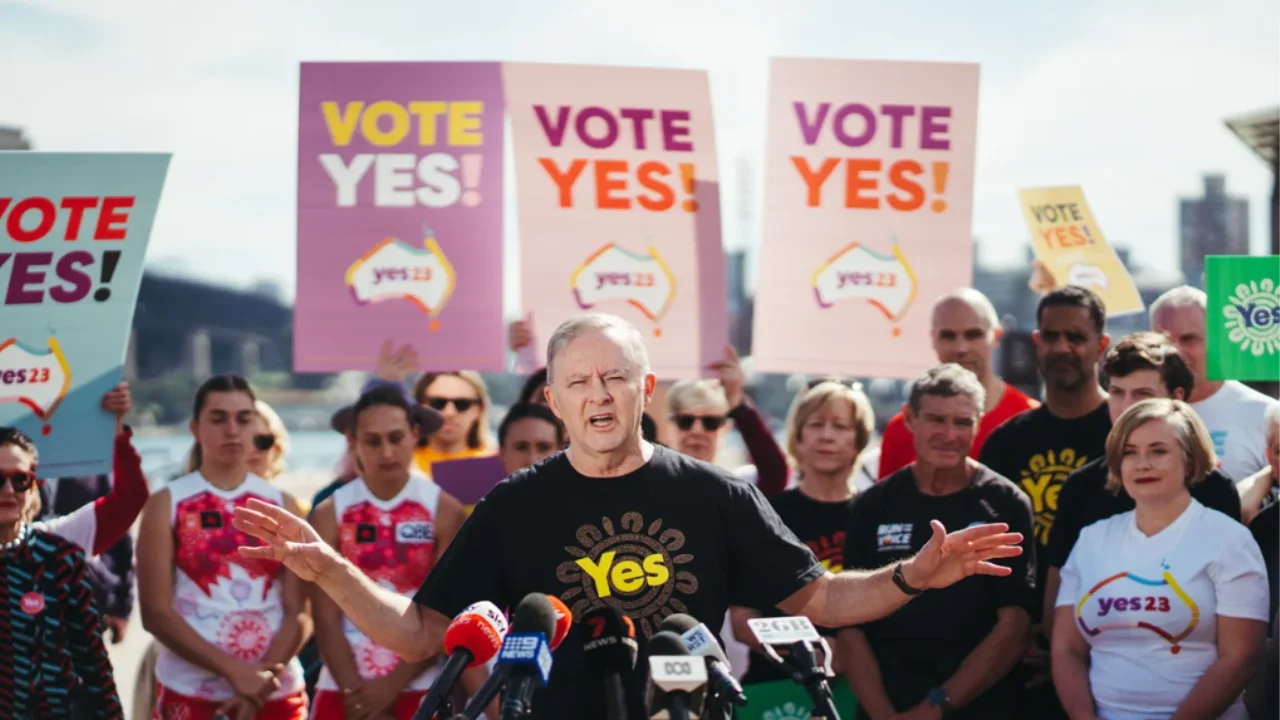Australia is on the brink of a historic moment as it prepares for a significant referendum scheduled for October 14th, which will determine the establishment of an Indigenous Voice to Parliament.
The Essence of the Referendum
The forthcoming referendum holds immense promise as it seeks to recognize the Aboriginal and Torres Strait Islander community within the country’s constitution. Beyond recognition, it aims to establish a permanent advisory body that would provide crucial input on legislative matters.
This proposal has ignited intense discussions, fueled by the fact that Australia has not witnessed a successful referendum in nearly half a century. To be successful, a majority of Australians need to vote in favor, with at least four out of the six states also showing majority support.
Prime Minister Anthony Albanese, while announcing the referendum date in Adelaide, referred to it as a “once-in-a-generation chance to bring our country together and to change it for the better.”
He elaborated that the Indigenous Voice would encompass a committee of Indigenous Australians, selected by their own communities, to offer valuable advice to the government. This initiative originates from a direct invitation extended by Aboriginal and Torres Strait Islander groups.
The Context of the Referendum
The foundation of this proposal lies in the 2017 Uluru Statement from the Heart, a historic document crafted by over 250 Indigenous leaders. While not universally endorsed, this statement serves as a significant rallying call for reforms that would benefit First Nations Australians.
In comparison to other Commonwealth nations, Australia remains unique in its failure to establish a treaty with its Indigenous population. Advocates perceive the Indigenous Voice as a pivotal stride toward addressing this historical gap and fostering a sense of reconciliation.
Opposition and Counterarguments
Opposition leader Peter Dutton, a critic of the Indigenous Voice proposal, raises concerns about its lack of specific details and controversially suggests that it could lead to racial division. Conversely, some opponents, including Dutton, have faced accusations of fueling racial tensions and disseminating misleading information.
These allegations and counter-allegations extend to claims of elitism against proponents of the “Yes” campaign, as well as accusations of dismissing legitimate concerns raised by ordinary Australians.
Impact and Mental Health Concerns
The emotionally charged nature of this debate has not been without consequences. Mental health advocates have cautioned against the toll it takes on Indigenous individuals. It’s important to note that Australia’s last referendum, in 1999, revolved around the topic of becoming a republic.
Out of a total of 44 referendums, only eight have succeeded, with the most recent one dating back to 1977. The impending referendum carries profound implications, marking a critical juncture in Australia’s history, where the nation grapples with recognizing its Indigenous population and rectifying historical injustices.




